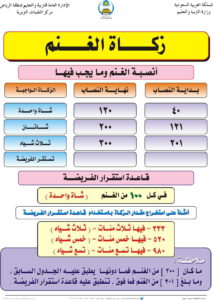The Zakat is a yearly form of compulsory alms that relatively wealthy Muslims are obligated to give. Its importance can be seen in the fact that Muslim scholars consider it the fourth pillar of Islam. Muslims view the zakat as more than mere redistribution of wealth from the rich to the poor in a fair and equitable way.
In the past, individual Muslims who qualify for the compulsory alms may need to find other individuals in the community who deserve the alms. The recipients of the zakat are generally those who are extremely poor, and they must fulfill several criteria before qualifying as a candidate for the alms.
In modern practice, the zakat is simply paid to a central organization which is ultimately responsible for the distribution of alms to the poor. However, the core aspects of the zakat itself remain unchanged with time. Relatively affluent Muslims are technically required by their faith to give up approximately 2.5% of their liquid assets (e.g., money in the bank). The determination of what actually constitutes affluence and liquid assets is rather specific and detailed, but the general essence of the zakat is easily understood.
As one can imagine, however, it is extremely difficult to keep track of alms collection at such a large scale. Due to this and other reasons, the zakat is usually considered a personal obligation and the giving of it is a matter of personal responsibility. What then prompts the average Muslim to part with his or her treasured wealth every year? Are there spiritual and social benefits to the zakat?
The spiritual rewards to a devout Muslim are indeed immense.
The Muslim who performs the zakat is obeying God’s command and shows his or her obedience in a very tangible way by parting with some unused wealth. The zakat is a reminder of one’s obligation to the financially less fortunate amongst us. It also helps a person to refrain from being obsessed with worldly wealth by affirming that all the wealth in the universe is truly the property of God. In that sense, any wealth that is given to humans is merely entrusted to them. The Muslim who performs the zakat will be increasingly in tune with the spiritual side of life. This self-discipline and spirituality will come in very handy in facing the trials and tribulations of life.
 Another function of the zakat beyond spiritual benefits is the purification of one’s wealth. Muslims consider any wealth that is directly or indirectly derived from vice to be forbidden. Yet, it may be difficult to keep track of all of one’s wealth and its sources. The zakat helps by cleansing one’s wealth of unintended transgressions so that it may continue to grow in a virtuous manner.
Another function of the zakat beyond spiritual benefits is the purification of one’s wealth. Muslims consider any wealth that is directly or indirectly derived from vice to be forbidden. Yet, it may be difficult to keep track of all of one’s wealth and its sources. The zakat helps by cleansing one’s wealth of unintended transgressions so that it may continue to grow in a virtuous manner.
An interesting thing to note here is that this growth may be a very direct result of the zakat itself in an economic sense. First, consider how general demand and supply work in economics. One of the primary factors influencing demand is how much money a person has. Businesses would like for consumers to spend, as this will usually increase their profit margins. They will then cope with the increased demand by hiring more workers who will, in turn, have more money to spend. This leads to a cycle that would grow indefinitely except for certain constraints, such as the fact that consumers will save at least a portion of their income.
Yet, it is these same savings that often form the capital for businesses to function in the first place. This is often associated with the phenomenon known as “the paradox of thrift“. For instance, Japan is notorious in the past for its extremely high savings, which has made its local demand rather weak.
The reader may wonder at this point how all this basic macroeconomics relates to the zakat?
Recall the nature of the zakat. It is a yearly alms fixed at 2.5% of unused liquid assets. This is a fantastic way to increase demand without affecting the savings funds which form the backbone of capital too much. It’s a given that the alms given to the poor will be almost wholly spent, as they will require the basic necessities of life.
At the same time, the affluent are only allocating 2.5% of their unused liquid assets. This is money that is just languishing around without contributing much to the economy. Another aspect of the zakat is that it encourages the affluent people practicing it to continue working and learning, as opposed to simply relying on the accumulated wealth to generate more wealth passively. When the means to do that is compound interest, then it becomes especially counterproductive as no real goods and services are produced despite the superficial increase in wealth.
The zakat has socioeconomic benefits on a very large scale.
Imagine if the wealthiest people in the world were to practice the zakat. Poverty would be eliminated almost overnight, along with its many associated problems. It is no secret that crime is often inspired by poverty, as people are simply trying to survive through desperate means. In that sense, the zakat can also help reduce crime in an indirect way, and it reaffirms the dignity of human beings.
Conclusion
Zakat has many spiritual and socioeconomic benefits
The spiritual benefits of obeying God and helping one’s fellow human beings cannot be overstated. They have many far-reaching positive influences. Yet, the zakat goes beyond just personal spirituality and can reinvigorate economies, reduce poverty and crime and balance differences in income without being an excessive form of a progressive tax. For all these reasons, the zakat’s advantages greatly outweigh whatever little or nonexistent disadvantages it may have. Indeed, the zakat may very well be the answer to many of the world’s socioeconomic and spiritual problems if it is implemented in a sound and just way.





